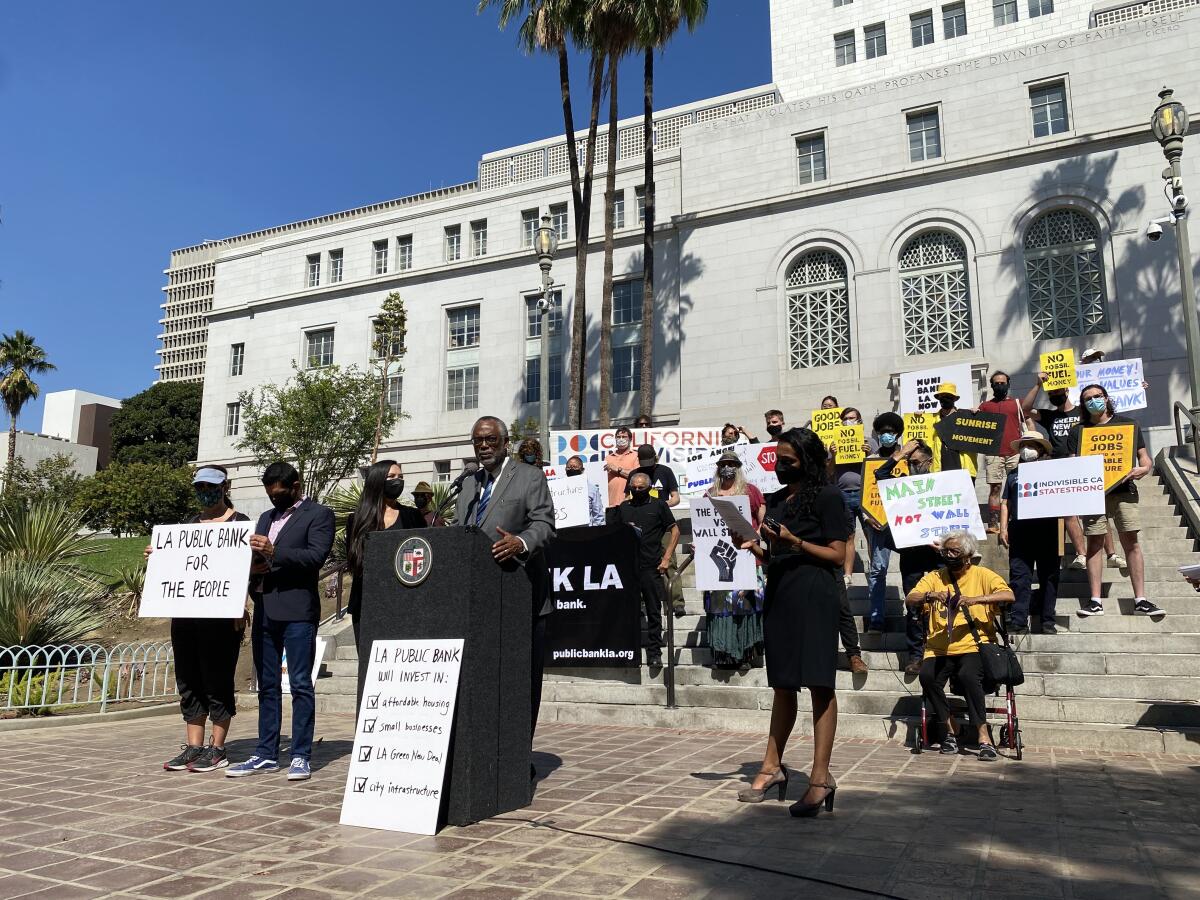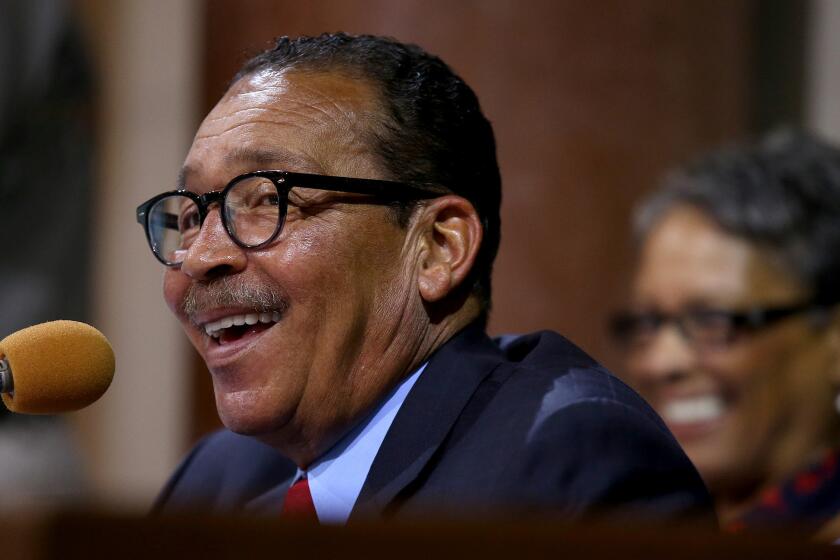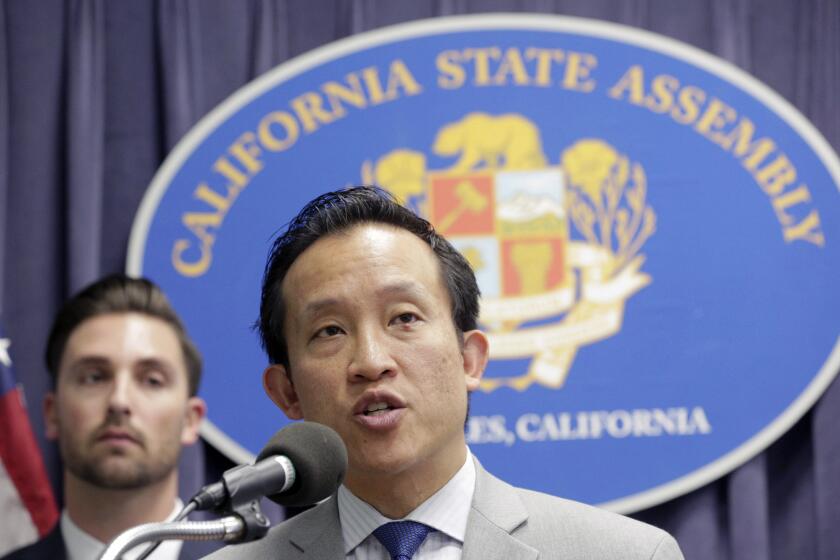L.A. takes a step toward launching a city-owned bank

- Share via
After a long hiatus, the movement to establish a public bank in Los Angeles is once again inching forward.
The City Council voted Tuesday to begin a process to study the viability of forming a city-owned bank and to create a business plan for doing so.
Proponents say a public bank would allow the city to save money on banking fees, increase credit access for small businesses in underserved areas and help finance affordable housing and green energy programs. Critics of the Los Angeles proposal have questioned whether the city can realistically manage a financial institution.
A number of cities, including San Francisco, Seattle and Philadelphia, are exploring the creation of public banks, but none have been established yet.
“The opportunity to form a public bank in the city of L.A. is extremely important as the city begins to recover from the COVID-19 pandemic,” City Councilman Curren Price said before the vote. “This matter before us now just sets that ball in motion, retaining a consultant to advise us on the pros and cons and the particulars of creating such an institution.”
L.A. City Council President Herb Wesson has proposed creating a public bank owned by the city.
The idea of establishing a public bank in Los Angeles was first broached by former Councilman Herb Wesson in 2017. The next year, Los Angeles voters rejected a ballot measure that would have altered the City Charter to allow for the creation of a city-owned bank.
Wesson, who was City Council president at the time, had framed the referendum as a way of gauging the local appetite for public banking.
The movement gained new momentum in October 2019, when Gov. Gavin Newsom signed a state bill allowing California cities and counties to establish public banks. The motion voted on Tuesday was introduced by Wesson the same week that Newsom signed the bill.
“This is an idea that has gone from maybe three people supported it a decade ago to now being a mainstream idea,” Councilman Mike Bonin said before Tuesday’s vote.
A bill that lays the groundwork for a potential statewide public banking option was signed into law by Newsom on Monday. Earlier this summer, San Francisco’s Board of Supervisors unanimously approved an ordinance that creates a working group tasked with building a business plan for their own future public bank.
At a news conference after the motion passed, Price said the pandemic had exposed shortcomings in the banking sector.
The councilman, whose district stretches from the Los Angeles Convention Center into South Los Angeles, said many in his district already hit hard by the pandemic struggled to access existing financial assistance programs and services because of barriers imposed by traditional financial institutions.
“With a public bank, these individuals and businesses would have had the opportunity to take out loans at a lower interest, which would have made a difference in how they weathered through the storm,” Price said.
Progressive environmental activists have also hailed public banking as a climate change mitigation tool, citing the opportunities it would afford cities in financing and lending on green projects. Many of the advocates gathered on the City Hall steps for Tuesday’s news conference wore Green New Deal shirts and several held signs reading “No Fossil Fuel Money.”
California is the second U.S. state to let cities and counties establish public banks, which can lend out public funds at low interest rates.
Establishing a public bank would also enable the city to respond to the climate crisis “by protecting those individuals who are poised to be at the front lines of the harms that will result from it,” Councilwoman Nithya Raman said.
During public comment, Giancarlo Rubio of the Valley Industry and Commerce Assn. was harshly critical of the motion, calling it “a slap in the face” to voters who had already soundly rejected the 2018 public banking ballot measure. “Public banks are risky and expensive,” Rubio said.
The formation of a city-owned financial institution still remains a long way off, and the City Council won’t decide on the issue until a consultant is hired and their report is completed. Part of the motion that passed instructs city officials to create a timeline for the process, which would include the eventual submission of application to state regulatory authorities for a bank charter.
Times staff writer Emily Alpert Reyes contributed to this report.
More to Read
Sign up for Essential California
The most important California stories and recommendations in your inbox every morning.
You may occasionally receive promotional content from the Los Angeles Times.













